Drinking herbal tea feels harmless-warm, calming, natural. But if you’re taking prescription meds, that cup might be doing more than soothing your throat. It could be making your blood thinner, lowering your blood pressure too far, or even turning your heart medication useless. The truth? Herbal teas aren’t just harmless drinks. Some can interfere with your meds in ways you’d never expect.
Why Herbal Teas Aren’t Just ‘Natural’
People assume that because something comes from a plant, it’s safe. That’s a dangerous myth. Herbal teas are concentrated with active compounds-flavonoids, alkaloids, polyphenols-that interact with your body’s systems just like drugs do. And unlike real medications, they don’t go through rigorous safety testing before hitting store shelves. The FDA doesn’t approve herbal teas before they’re sold. They’re regulated as food, not medicine. That means no one checks how they’ll react with your blood pressure pill, your antidepressant, or your blood thinner.Green Tea: The Silent Drug Thief
Green tea isn’t just a trendy health drink. It’s a powerful biochemical player. Studies show that drinking just three cups of strong green tea daily can slash the effectiveness of the beta-blocker nadolol by up to 85%. That’s not a small drop-it’s enough to make your heart rate spike and your blood pressure climb dangerously high. Why? Green tea blocks the transporters your body uses to absorb certain drugs. This includes statins like atorvastatin, antibiotics like ciprofloxacin, and even cancer drugs like imatinib. Even more concerning: green tea can boost the levels of simvastatin by more than double. That sounds good until you realize too much simvastatin can cause muscle breakdown, kidney failure, or even death. The same compounds in green tea that give it antioxidant power also mess with your liver enzymes (CYP3A4 and P-glycoprotein) that break down drugs. What’s safe in a supplement? Maybe. But in tea? Still risky.Chamomile: The Birth Control Saboteur
Chamomile tea is often recommended for sleep and anxiety. But if you’re on birth control pills, you might be getting less protection than you think. Early research suggests chamomile contains apigenin, a compound that interferes with the liver enzyme CYP3A4. This is the same enzyme that metabolizes estrogen in oral contraceptives. If that enzyme slows down, estrogen levels can drop-potentially leading to unintended pregnancy. It’s not proven in large human trials yet, but enough lab and small-study evidence exists that doctors in New Zealand and the U.S. now warn women on birth control to avoid daily chamomile tea. The risk isn’t huge for occasional sipping, but if you drink two or three cups a day, especially over months, the chance of failure increases. And if you’re also on antidepressants, antifungals, or cholesterol meds? The interference gets worse.Hibiscus Tea: When ‘Natural’ Lowers Blood Pressure Too Much
Hibiscus tea is popular for its tart flavor and claims of lowering blood pressure. And it works. But if you’re already taking lisinopril, losartan, or any ACE inhibitor or ARB? You’re stacking two blood pressure-lowering agents. That’s a recipe for dizziness, fainting, or worse-kidney damage from sudden drops in blood pressure. Clinical case reports show patients with normal blood pressure dropping below 90/60 after adding hibiscus tea to their routine while on lisinopril. One man in Auckland ended up in the ER with syncope after switching from black tea to hibiscus. His doctor had no idea he’d started drinking it daily. He wasn’t even thinking of it as a ‘medication.’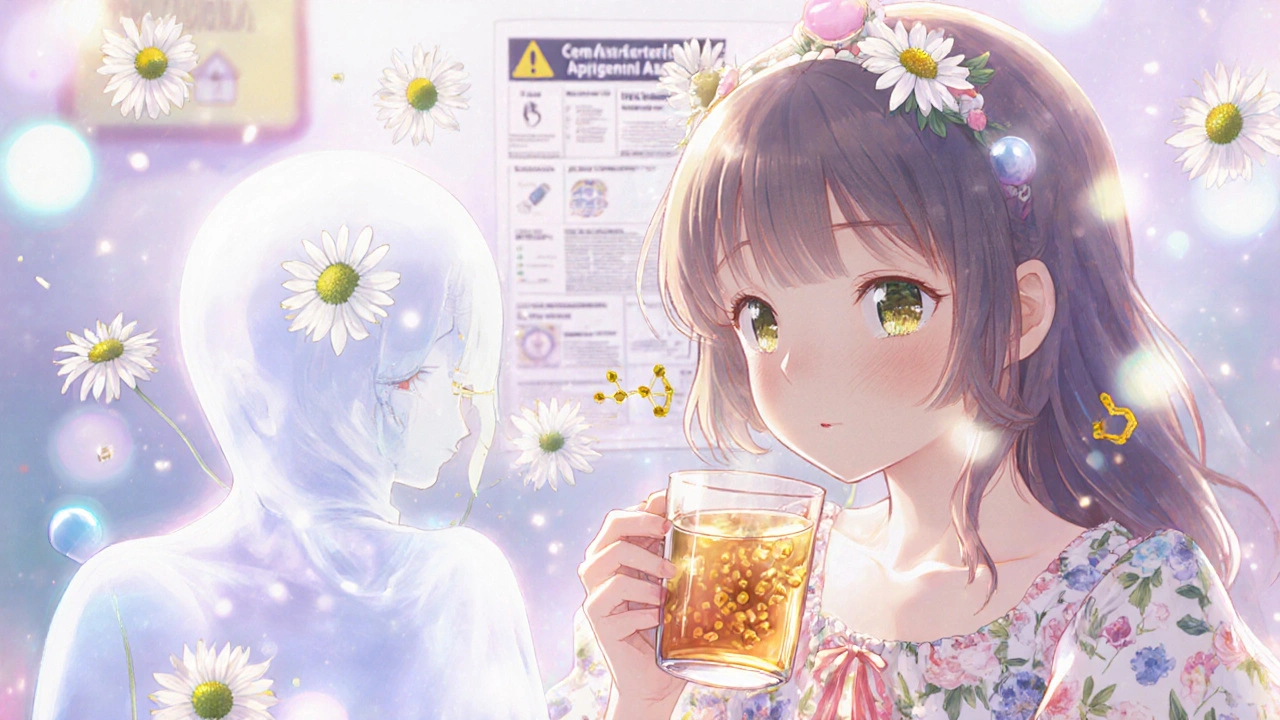
St. John’s Wort: The Mood Killer
St. John’s wort tea (made from the flowering plant) is used for mild depression. But it’s one of the most dangerous herbal teas for drug interactions. It speeds up your liver’s ability to break down drugs-so fast that many medications never reach effective levels. It affects antidepressants (SSRIs like sertraline), birth control pills, blood thinners, HIV meds, and even heart drugs like digoxin. People on St. John’s wort have reported breakthrough depression, unplanned pregnancies, and even organ rejection after transplants because their immunosuppressants got flushed out too quickly. The NCCIH calls this interaction ‘clinically significant’-meaning it’s not theoretical. It’s happened. And it’s happened often.Goldenseal, Ginkgo, and the Bleeding Risk
Goldenseal tea-sometimes used for colds or digestion-blocks the CYP2D6 and CYP3A4 enzymes. That’s a problem if you’re on codeine, tamoxifen, or many antidepressants. But the bigger danger? Bleeding. Ginkgo biloba tea (and extracts) is a known blood thinner. If you’re on warfarin, aspirin, or clopidogrel, ginkgo can turn a minor cut into a long-lasting bleed. The same goes for garlic tea, ginger tea, and even chamomile. The American Heart Association and Mayo Clinic both warn: avoid these if you’re on anticoagulants. Even if you’ve been drinking them for years, adding a new medication can suddenly make them dangerous.Who’s Most at Risk?
It’s not just seniors. But they’re the most vulnerable. Over 70% of adults over 65 take at least one prescription drug. Nearly half also use herbal products. Yet only 25% tell their doctor. Why? Because they don’t think tea counts. They say, “I just drink chamomile for sleep.” They don’t say, “I take a herbal supplement.” People on narrow therapeutic index drugs are in the highest danger zone. These are meds where the difference between a good dose and a toxic one is tiny:- Warfarin (blood thinner)
- Digoxin (heart medication)
- Cyclosporine (organ transplant drug)
- Theophylline (asthma drug)
- Lithium (mood stabilizer)
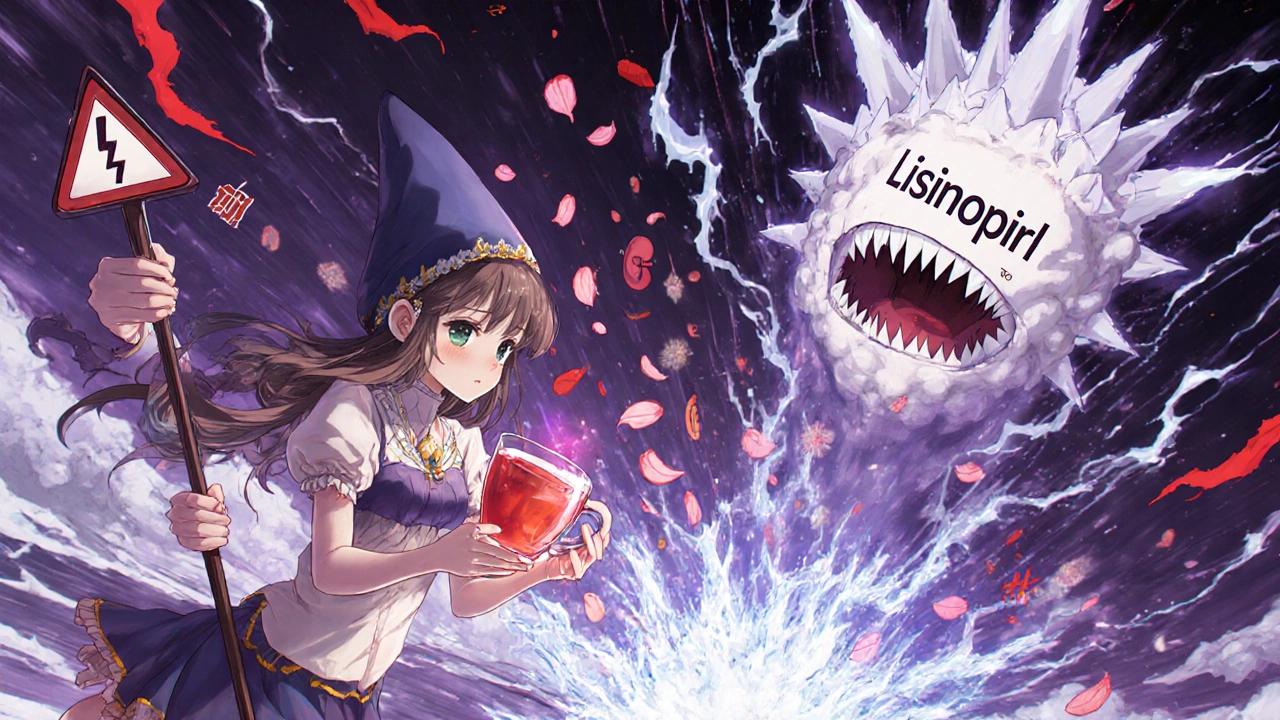
What You Should Do
You don’t have to quit herbal tea. But you need to be smart.- Make a list. Write down every tea you drink daily, how often, and how strong. Include blends with multiple herbs.
- Bring it to your doctor. Don’t wait for them to ask. Say: “I drink this tea every day. Does it mess with my meds?”
- Avoid concentrated extracts. Tea is usually safer than pills or tinctures. But if you’re using a ‘detox’ or ‘immune-boosting’ tea blend with 10 herbs? That’s a gamble.
- Don’t assume ‘natural’ = safe. The FDA says it outright: natural doesn’t mean safe. A plant can be as powerful-and as dangerous-as a pill.
- Watch for signs. If your meds suddenly stop working-or you feel dizzy, bruise easily, or have unusual bleeding-ask if your tea could be the cause.
What Your Doctor Should Ask
Doctors aren’t always trained to ask about herbal teas. But they should. During medication reviews, they need to say:- “Do you drink any herbal teas daily?”
- “What brands or blends?”
- “Have you noticed any changes since you started drinking them?”
The Bottom Line
Herbal teas aren’t the enemy. But they’re not harmless either. They’re bioactive. They change how your body handles medicine. And if you’re taking drugs with tight safety margins, that change can be life-threatening. The answer isn’t to avoid tea. It’s to know what’s in it. To talk about it. To treat it like the medicine it can be.If you’re on warfarin, avoid ginkgo and green tea. If you’re on birth control, skip chamomile daily. If you’re on blood pressure meds, don’t drink hibiscus without checking with your doctor. And if you’re on anything else? Ask. Always ask.
Can I drink herbal tea while taking blood thinners like warfarin?
Some herbal teas can increase your risk of bleeding when taken with warfarin. Ginkgo biloba, garlic, ginger, chamomile, and green tea have all been linked to higher INR levels in some cases. Cranberry tea is controversial-some studies show risk, others don’t. The safest approach is to avoid these teas entirely if you’re on warfarin, or at least keep your intake consistent and get your INR checked regularly. Never start or stop drinking them without talking to your doctor.
Does green tea reduce the effectiveness of statins?
Yes. Studies show green tea can reduce the absorption of atorvastatin by 31-39% and lower blood levels of other statins. This happens because green tea blocks transporters in your gut that help absorb these drugs. If you drink green tea daily, your cholesterol may not be controlled as well as it should be. Talk to your doctor about timing-drinking tea at least 4 hours apart from your statin might help, but avoiding it altogether is the safest option.
Is chamomile tea safe if I’m on birth control?
Chamomile tea may interfere with how your body processes estrogen in birth control pills by affecting liver enzymes. While large-scale human trials are lacking, small studies and lab evidence suggest a potential risk. If you drink chamomile tea daily-especially strong or concentrated brews-you could be at higher risk of contraceptive failure. Occasional use is likely low risk, but daily use should be discussed with your doctor. Consider switching to a non-herbal tea or limiting intake.
Can hibiscus tea lower blood pressure too much?
Yes. Hibiscus tea acts like an ACE inhibitor, similar to lisinopril or enalapril. If you’re already taking one of these drugs, combining it with hibiscus tea can cause your blood pressure to drop too low-leading to dizziness, fainting, or kidney strain. One documented case showed systolic pressure falling below 90 mmHg. Avoid hibiscus tea if you’re on blood pressure meds, or drink it only occasionally and monitor your pressure closely.
Why don’t more doctors know about these interactions?
Most medical training focuses on pharmaceutical drugs, not herbal products. Also, many patients don’t think of tea as a ‘supplement’ and don’t mention it. Herbal teas aren’t required to carry interaction warnings, and research is still catching up. Only about 17% of known herb-drug interactions have been confirmed in human trials. But that doesn’t mean they’re not real-it means we’re still learning. Always speak up. Your doctor can’t help if they don’t know.
Are herbal tea blends more dangerous than single-herb teas?
Absolutely. A blend with 5-10 herbs might contain multiple interaction risks at once. For example, a ‘detox’ tea could have dandelion (liver stimulant), ginger (blood thinner), and licorice (potassium dropper)-all interacting with your meds in different ways. These blends are rarely tested for safety, and labels rarely list exact amounts. Avoid them if you’re on prescription drugs. Stick to single-herb teas you can research individually.
What should I do if I think my tea is interfering with my medication?
Stop drinking the tea immediately and contact your doctor or pharmacist. Don’t wait for symptoms to get worse. Bring the tea packaging or a photo of the ingredients list. If you’re on a critical medication like warfarin or digoxin, go to urgent care if you feel dizzy, faint, bruise easily, or notice unusual bleeding. Keep a journal of what you drink and how you feel-this helps your provider spot patterns.
What to Do Next
Start today. Grab your medication list. Write down every herbal tea you drink. Look up each herb on the NCCIH website or ask your pharmacist. Don’t guess. Don’t assume. If you’re unsure, skip it. Your health isn’t worth the risk.Herbal teas can be part of a healthy life-but only if you treat them with the same respect you give your prescriptions. Because in your body, they’re not just flavor. They’re chemistry.
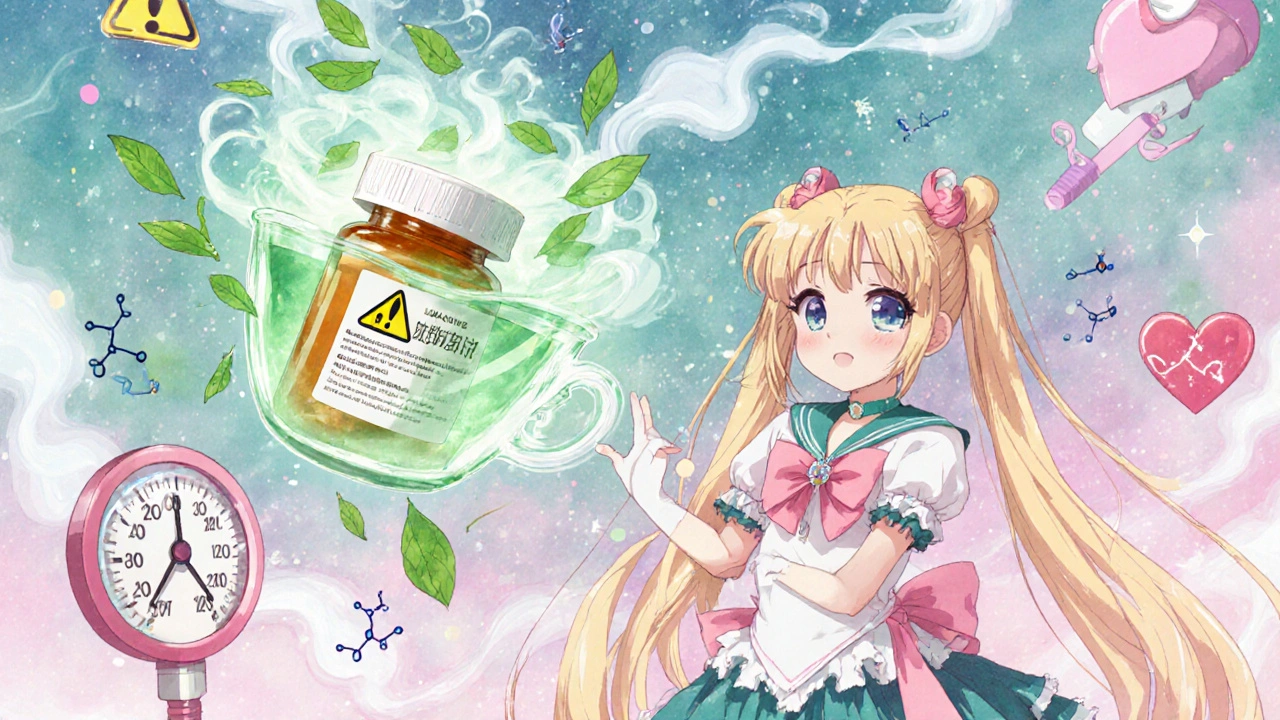

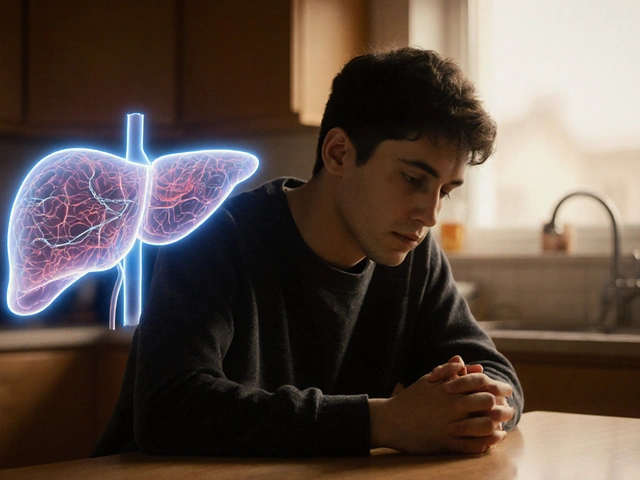
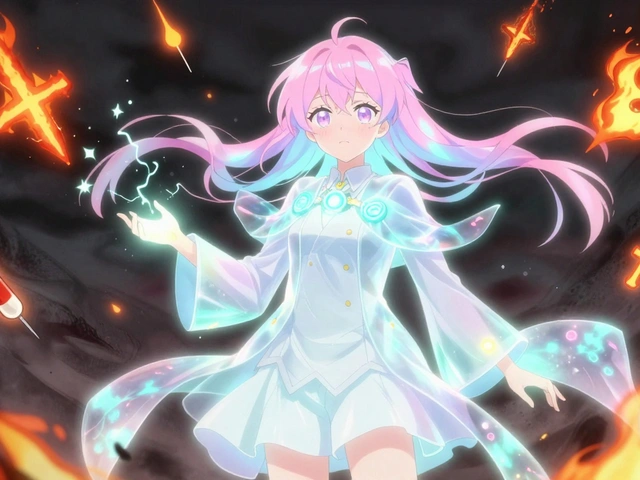
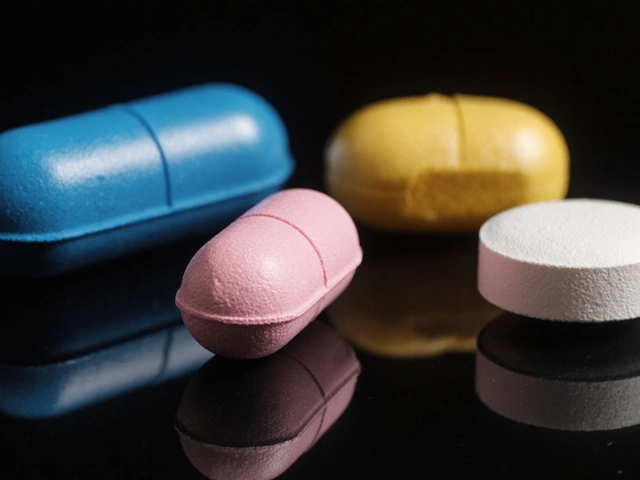
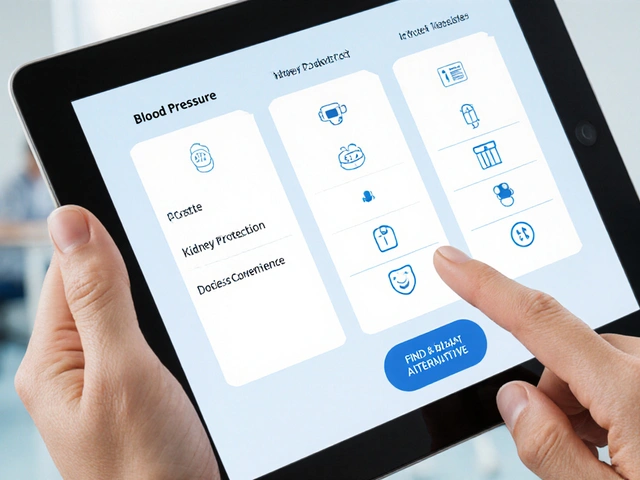
Comments
David vaughan
November 21, 2025 AT 22:05 PMOkay, but have you ever considered that the FDA doesn't regulate tea because it's not supposed to be a drug? It's like worrying about sunlight interfering with your insulin... it's there, sure, but unless you're sitting in a tanning bed while injecting, you're fine. I drink green tea with my statins daily. No issues. Maybe your doctor just doesn't know how to read a study.
David Cusack
November 23, 2025 AT 12:34 PMOne must question the epistemological foundations of this piece. The conflation of 'natural' with 'unsafe' is a classic rhetorical fallacy-indeed, the entire pharmacopeia of Western medicine is derived from botanicals. To demonize herbal infusions while glorifying synthetic derivatives is not science-it is ideological colonialism disguised as public health.
Elaina Cronin
November 25, 2025 AT 10:55 AMI am deeply concerned for the elderly population who are not being asked about their herbal tea consumption. My grandmother takes warfarin and drinks chamomile every night. She thinks it's 'just tea.' No one ever asked her. This is negligence. We must advocate for standardized screening during med reviews. This isn't about fear-it's about dignity and safety.
Willie Doherty
November 26, 2025 AT 04:16 AMLet’s analyze the data. Of the 12 cited interactions, only 3 have RCT-level human evidence. The rest are in vitro, case reports, or pharmacokinetic extrapolations. The risk of ginkgo + warfarin is real, yes. But claiming green tea reduces nadolol efficacy by 85% from a single small cohort study is statistical overreach. This article reads like fearmongering dressed in peer-reviewed clothing.
Darragh McNulty
November 26, 2025 AT 21:05 PMY’all need to chill 😌 I’ve been drinking hibiscus tea with my lisinopril for 3 years. My BP is LOWER than ever. My doc knows. We check my labs every 6 weeks. It’s not magic-it’s communication. Talk to your provider. Don’t panic. 🙏
Cooper Long
November 27, 2025 AT 06:21 AMMy grandmother in rural Alabama drinks ginger tea every morning with her blood pressure pills. She’s 89. Still drives. Still gardens. Never heard of CYP3A4. Doesn’t care. She knows what works. Maybe the real problem isn’t the tea-it’s our over-medicalization of everything.
Sheldon Bazinga
November 27, 2025 AT 16:11 PMLOL so now even TEA is a drug?? Next they’ll say breathing is dangerous if you’re on albuterol. This is why america is broke. People think a leaf in hot water is gonna kill em. My grandpa drank chamomile with his heart meds for 40 years. He’s 97. And still roasts me for wearing socks with sandals 😂
Sandi Moon
November 28, 2025 AT 22:52 PMAnd yet, the pharmaceutical industry spends billions lobbying to keep herbal remedies unregulated-because they profit from your ignorance. The FDA doesn't regulate tea? Correct. But they also don't regulate the price of insulin. Coincidence? Or is this a system designed to keep you dependent? Wake up.
Michael Marrale
November 30, 2025 AT 11:41 AMDid you know the CIA used to test herbal teas in the 1950s to see if they could make people forget their meds? They called it Project Lotus. That’s why your doctor won’t ask about tea. They’re not allowed to. I found the documents. They’re classified. But I have a copy. Want to see it? I’ll send it. No joke. I’m not crazy. I’m just informed.
Kartik Singhal
December 1, 2025 AT 09:56 AMEveryone’s overreacting. The real issue? You’re drinking tea at the wrong time. Take your meds with food. Drink tea 3 hours later. Problem solved. Also, if you’re on warfarin and drinking ginkgo tea, you’re not just dumb-you’re Indian. We’ve known this since Ayurveda. But you westerners need a 12-page PDF to understand a leaf.